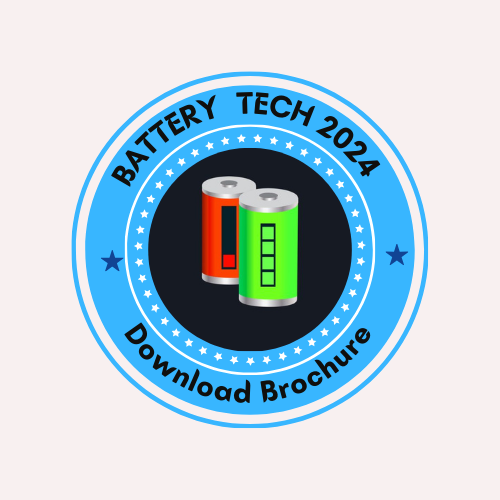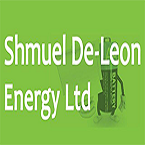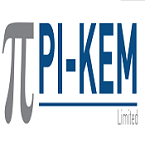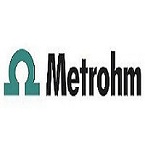Renowned Speakers

Eunice Cunha
INEGI Portugal

Saloua Merazga
CRTSE CENTER Algeria
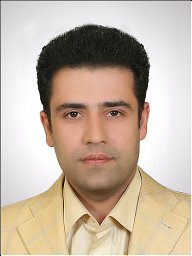
Shahram Arbab
ATMT Research Institute Iran

Karan K. Rathi
Director UK
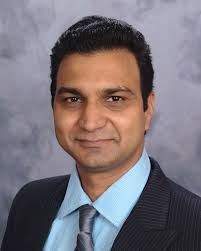
Vilas G Pol
Purdue University USA

Jolanta Swiatowska
Institut de Recherche de Chimie Paris France

Jens Noack
Fraunhofer-Institute for Chemical Technology Germany

Rakesh Verma
Indian Institute of Technology India
Recommended Global Alternative Healthcare Webinars & Conferences
Europe & UK
Asia Pacific & Middle East
Canada
Battery Tech 2024
- Welcome Message
- About Conference
- Why to attend
- Target audience
- Scientific Sessions
- Market Analysis
- Past Conference Report
- About VISA
Welcome Message
Welcome to the 6th International Conference on Battery and Fuel Cell Technology! We're excited to gather in Paris to explore innovative energy solutions. Join researchers, scientists, and industry professionals for lively discussions and collaborations. With a diverse program covering various topics, there's something for everyone, from fundamental research to practical applications.
Engage in keynote speeches, presentations, workshops, and exhibitions to stay updated on the latest advancements. Let's work together to shape a sustainable future powered by cutting-edge technologies. Welcome once again to this exciting journey of exploration and collaboration!
About Conference
6th International Conference on Battery and Fuel Cell Technology set to be held on June 20-21, 2024, in the captivating city of Paris, France. Our theme for this conference is "Powering the Future: Innovations in Energy Storage and Sustainability."
Battery Tech 2024 will be a 2-day conference both in-person and online options for participation. We believe this flexibility will encourage broader engagement.
Similar to previous years, our conference promises to be a dynamic and enriching experience for all participants. We have curated a diverse range of activities including lectures, keynote presentations, oral and poster sessions, exhibitions, and engaging panel discussions. Attendees will have ample opportunities to share their knowledge, insights, and latest research findings in the field of battery and fuel cell technology.
This year's agenda also includes the opportunity to participate in or organize workshops, providing a platform for interactive learning and collaboration among attendees. We are committed to fostering innovation and exploring new advancements that will contribute to a sustainable future.
Join us in Paris as we come together to explore the latest innovations in energy storage and sustainability. Let's work towards a brighter and more sustainable future together.
Oral and poster abstracts are now invited and should be submitted using the online abstract submission system. All submitted abstracts will be published in the special issue section as conference proceedings in the Battery Tech Journals.
Abstract Submission Criteria:
-
The Abstract should be written in English.
-
Abstract length not exceeds 300 words.
-
The title should be in sentence case
-
Please indicate one - three most relevant themes for your abstract from the conference tracks.
-
Please send in a brief biography together with the Abstract limited to 100 words) along with the photograph. (An example is given in the abstract template).
-
Please download the abstract template and follow the format carefully.
-
Documents that do not conform to the guidelines will be asked to revise.
-
Documents received after the given deadline, due to any reason will not be accepted unless the deadline is extended.
Conference Brochure:
To download the conference Brochure, please fill the required details in the Form and click on Download Brochure. Battery Tech 2024. Brochure can be downloaded.
Why to attend
Battery Tech 2024 conference paves a platform to globalize the research by installing a dialogue between industries and academic organizations and knowledge transfer from research to industry. Battery Tech 2024 aims in proclaim knowledge and share new ideas amongst the professionals, industrialists and students from research areas of Battery and fuel cell technology and all the related disciplines to share their research experiences and indulge in interactive discussions and special sessions at the event.
-
Engage with leading experts from around the globe in the battery and fuel cell community.
-
Explore the latest advancements, methods, and breakthroughs in energy storage and conversion.
-
Network with established and emerging scientists, share novel discoveries, and establish your presence in the field.
-
Participate in interactive debates, plenary sessions, and discussions on current issues, guided by evidence-based expert opinion.
-
Gain insights and knowledge from keynote presentations and discussions delivered by eminent scientists.
-
Contribute to symposiums and workshops, fostering collaboration and knowledge exchange among attendees.
-
Earn recognition and credit for your contributions in the field of battery and fuel cell technology.
Target audience
Battery Tech 2024 is expecting the participants from all over the world in its multidisciplinary fields.
-
Professors, Students, Researchers and Technical Staff from Physics and Astronomy and other related disciplines
-
Scientists and students from Engineering and Technology(E&T)
-
Delegates from Material science and chemical engineering.
-
Delegates from electrical, electronics and advanced chemical engineering.
-
Directors of Companies
-
Managers & Business Intelligence Experts
-
Research students and Research Institutes
-
Advertising and Promotion Agency Executives
-
Nanotechnology Engineers
Scientific Sessions
Scientific Session 1: Dual- Ion Batteries
Dual-ion batteries working mechanism of DIBs is different from that of traditional LIBs, where cations and anions both participate in the intercalation and deintercalation processes with the low-cost graphite as both cathode and anode materials and anions are intercalated/deintercalated into the anode and cathode during the charge/discharge process, respectively.
Recommended : Battery Conferences | Lithium Battery Conferences | Battery And Fuel Cell Technology | Aqueous Battery Congress | Fuel Cell Technology Congress | General Aspect of Battery Symposium | Recent Advancement in Fuel Cell Technology Event
Scientific Session 2: Biodegradable Batteries
The concept of a bioelectric battery that could be directly implanted into the body with body fluid as electrolyte has existed since the 1970s as body fluids contain various ions suitable for use as electrolyte. The first biodegradable battery with bioresorbable metallic electrodes was reported by Rogers' group in 2014.
Recommended: Battery Conferences | Lithium Battery Conferences | Battery And Fuel Cell Technology | Aqueous Battery Congress | Fuel Cell Technology Congress | General Aspect of Battery Symposium | Recent Advancement in Fuel Cell Technology Event
Scientific Session 3: General aspect of battery
Battery is a device consisting of one or more electrochemical cells with external connections connected to energize the electrical devices. A battery has a cathode, and an anode. The name "battery" commonly denoted to a device composed of multiple cells, yet the procedure has advanced to additionally include devices consisting of a single cell.
Recommended : Battery Conferences | Lithium Battery Conferences | Battery And Fuel Cell Technology | Aqueous Battery Congress | Fuel Cell Technology Congress | General Aspect of Battery Symposium | Recent Advancement in Fuel Cell Technology Event
Scientific Session 4 : Aqueous batteries
Most battery types employ aqueous electrolytes since the invention of Voltaic piles in the late 18th century. To date, two battery technologies dominate nearly the entire market of batteries they are lead–acid batteries and LIBs. It is predicted by Bloomberg NEF that the global storage capacity excluding pumped hydro storage (PHS) will increase from 9 GW currently to more than 1095 GW
Recommended : Battery Conferences | Lithium Battery Conferences | Battery And Fuel Cell Technology | Aqueous Battery Congress | Fuel Cell Technology Congress | General Aspect of Battery Symposium | Recent Advancement in Fuel Cell Technology Event
Scientific Session 5: Application of batteries
Presenting large batteries for stationary applications, e.g. energy storage, and also batteries for hybrid vehicles or different tools. Secondary Battery such as Lithium batteries are used in various types of mobile devices, including communication equipment, computers, entertainment devices, power tools, toys, games, lighting and medical devices.
Recommended : Battery Conferences | Lithium Battery Conferences | Battery And Fuel Cell Technology | Aqueous Battery Congress | Fuel Cell Technology Congress | General Aspect of Battery Symposium | Recent Advancement in Fuel Cell Technology Event
Scientific Session 6: Nanotechnology in Advance batteries
Nano batteries are fabricated batteries employing technology at the Nano scale, a scale of microscopic particles that amount less than 100 nanometres or 10−7 meters. In contrast, out-dated Li- ion battery uses active materials, such as cobalt-oxide, with atoms or particles that range in size between 5 and 20 micrometres (5000 and 20000 nanometres - over 100 times Nano scale).
Recommended: Battery Conferences | Lithium Battery Conferences | Battery And Fuel Cell Technology | Aqueous Battery Congress | Fuel Cell Technology Congress | General Aspect of Battery Symposium | Recent Advancement in Fuel Cell Technology Event
Fuel cells are categorized mainly by the kind of electrolyte they employ. This classification determines the kind of electro-chemical reactions that take place in the cell, the kind of catalysts required, the temperature range in which the cell operates, the fuel required, and other factors
Recommended : Battery Conferences | Lithium Battery Conferences | Battery And Fuel Cell Technology | Aqueous Battery Congress | Fuel Cell Technology Congress | General Aspect of Battery Symposium | Recent Advancement in Fuel Cell Technology Event
Scientific Session 8: Application of Fuel cells
Fuel cells at present outlines fuel cells for transportation as any units that deliver propulsive electricity to a vehicle, directly or indirectly. Forklift trucks and other goods control vehicles such as airport luggage automobiles, Two- and three-wheeler automobiles such as scooters, light duty vehicles.
Recommended : Battery Conferences | Lithium Battery Conferences | Battery And Fuel Cell Technology | Aqueous Battery Congress | Fuel Cell Technology Congress | General Aspect of Battery Symposium |Recent Advancement in Fuel Cell Technology Event
Scientific Session 9: Microbial Fuel cells
Microbial fuel cell (MFC) research is a rapidly evolving field that lacks established terminology and methods for the analysis of system performance. This makes it difficult for researchers to compare devices on an equivalent basis. The construction and analysis of MFCs requires knowledge of different scientific and engineering fields, ranging from microbiology and electrochemistry to materials and environmental engineering.
Recommended: Battery Conferences | Lithium Battery Conferences | Battery And Fuel Cell Technology | Aqueous Battery Congress | Fuel Cell Technology Congress | General Aspect of Battery Symposium | Recent Advancement in Fuel Cell Technology Event
Scientific Session 10: Proton Exchange Membrane Fuel cells
Proton exchange membrane fuel cell (PEMFC) is considered as one promising clean and highly efficient power generation technology in 21st century. Current PEMFC operating at low temperatures (<80 °C) encounters several difficulties, such as CO tolerance, heat rejection, which can be, to a great extent, surmounted at higher temperatures (120–150 °C).However, the higher temperature conditions are much more challenging to implement, particularly with regards to the durability of the cell component materials.
Recommended: Battery Conferences | Lithium Battery Conferences | Battery And Fuel Cell Technology | Aqueous Battery Congress | Fuel Cell Technology Congress | General Aspect of Battery Symposium | Recent Advancement in Fuel Cell Technology Event
Scientific Session 11: Battery Electric vehicles
Battery electric vehicles (EVs) (BEVs) are highly expected in China for reducing environmental emission in the transport sector because of BEVs’ zero emission during use and high energy efficiency. This chapter first reviews the current situations of EVs’ ownership and usage in China and then analyzes the attitude and purchase intention to BEVs by considering the impacts of various BEV ownership stimulation policies in China (such as license-plate lottery and BEV subsidies).
Recommended :Battery Conferences | Lithium Battery Conferences | Battery And Fuel Cell Technology | Aqueous Battery Congress | Fuel Cell Technology Congress | General Aspect of Battery Symposium | Recent Advancement in Fuel Cell Technology Event
Scientific Session 12: Battery Raw Materials
Battery raw materials are used in the production of various types of batteries, which are used in a wide range of applications, including: Consumer electronics: Lithium-ion batteries are commonly used in smartphones, laptops, tablets, and other consumer electronics devices.
Market Analysis
The 6th International Conference on Battery and Fuel Cell Technology aims to foster innovation, collaboration, and knowledge exchange in energy storage and conversion. We provide a platform for experts to explore emerging trends, share research, and discuss sustainable energy solutions, driving towards a more efficient and reliable future.
Importance & Scope:
Fuel cells have lower or zero emissions compared to combustion engines. Hydrogen fuel cells emit only water, addressing critical climate challenges as there are no carbon dioxide emissions. There also are no air pollutants that create smog and cause health problems at the point of operation.
In the future, fuel cell stacks will become more efficient. Some systems can currently achieve 60% efficiency, but this will soon change. Expect levels of 70% and even higher later in this decade. This is mainly due to the new materials and designs that researchers are developing.
The France Fuel Cell Market is segmented by Application (Portable, Stationary, and Transportation) and Fuel Cell Technology (Polymer Electrolyte Membrane Fuel Cell (PEMFC), Solid Oxide Fuel Cell (SOFC), and Other Fuel Cell Technologies). The report offers the market size and forecasts in revenue (USD billion) for the above segments
France Fuel Cell Market Analysis
The French fuel cell market is expected to register a CAGR of over 10% during the forecast period. The market was negatively impacted by the COVID-19 pandemic in 2020. Presently, the market has reached pre-pandemic levels.
Over the medium term, increasing hydrogen filling stations and rising demand for fuel cell electric vehicles (FCEVs) are expected to drive the growth of the market in the future. On the other hand, less number of refuel stations compared to vehicle production due to the supply-demand gap is expected to hamper the growth of the French fuel cell market during the forecast period. The European Union plans to significantly reduce GHG emissions from the transportation sector. As a result, the French government is implementing innovative technologies, such as fuel cells (primarily PEMFC), to meet these objectives, thus creating lucrative growth opportunities for the market during the forecast period.
Past Conference Report
Conference Series is organizing international conference 5th International Conference on Batteryand Fuel Cell Technology during October 23-24, 2023.
Battery Tech 2023 will impact an attractive moment to meet the people in the research field and development; therefore it takes a delight in opening a gate to meet the ability in the field, young researchers and potential speakers. The conference also includes essential topics on technologies related to batteries and fuel cells, especially on what we accomplished so far and what we will succeed in future.
About VISA
Considering a visit to Paris, France? Join us for our Meeting!
Facing VISA complications?
To assist participants with their VISA application process, we provide VISA support documents, including:
- Abstract acceptance letter (if speaker),
- Registration payment receipt,
- Accommodation confirmation letter issued under conference letter head.
For letter of invitation and accommodation confirmation, payment of registration fees and accommodation charges is a pre-requisite. Mandate documents required Kindly contact
Liya Garcia
Program coordinator
To Collaborate Scientific Professionals around the World
Conference Date June 20-21, 2024
For Sponsors & Exhibitors
Speaker Opportunity
Useful Links
Past Conference Report
Supported By
All accepted abstracts will be published in respective Conference Series International Journals.
Abstracts will be provided with Digital Object Identifier by
